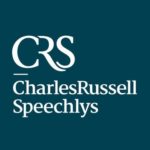Continue reading "Will disputes: The recalcitrant executor"
Will disputes: The recalcitrant executor

Barny Croft and Louise Corfield consider Pegler v McDonald, the case that has something for everyone The court deemed that its findings added up to a ‘comprehensive disqualification for [the defendant’s] being concerned in the fiduciary administration of assets for the benefit of other people’. If you have not read the case of Pegler v …






